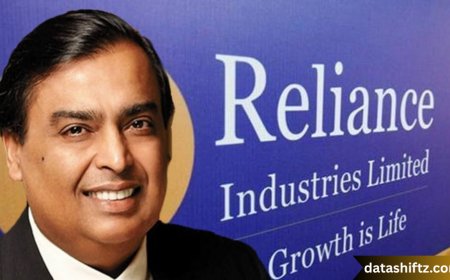Justice B.R. Gavai: India's 52nd Chief Justice and a Symbol of Judicial Inclusivity

Introduction
On May 14, 2025, Justice Bhushan Ramkrishna Gavai was sworn in as the 52nd Chief Justice of India (CJI), marking a significant milestone in the nation's judicial history. His appointment is notable not only for his extensive legal acumen but also for his representation as the first Buddhist and second Dalit to ascend to the highest judicial position in India. Justice Gavai's journey from humble beginnings in Amravati, Maharashtra, to the apex of the Indian judiciary exemplifies dedication, resilience, and an unwavering commitment to justice.
Early Life and Legal Career
Born on November 24, 1960, in Amravati, Maharashtra, Justice Gavai hails from a family deeply rooted in social activism. His father, R.S. Gavai, was a prominent political figure, serving as a Member of Parliament and Governor of multiple states. Inspired by Dr. B.R. Ambedkar's ideals, the Gavai family embraced Buddhism, instilling values of equality and social justice in young Bhushan.
After earning degrees in commerce and law from Amravati University, Justice Gavai embarked on his legal career in 1985. He initially worked under the mentorship of the late Raja S. Bhonsale, former Advocate General and High Court Judge, before establishing his independent practice at the Bombay High Court in 1987. His dedication and legal prowess led to his appointment as Assistant Government Pleader and Additional Public Prosecutor at the Nagpur Bench of the Bombay High Court in 1992. By 2000, he had risen to the position of Government Pleader and Public Prosecutor for the same bench.
Judicial Appointments and Tenure
Justice Gavai's judicial career is marked by a series of significant appointments:
| Position | Tenure Start | Tenure End |
|---|---|---|
| Additional Judge, Bombay High Court | Nov 14, 2003 | Nov 11, 2005 |
| Permanent Judge, Bombay High Court | Nov 12, 2005 | May 23, 2019 |
| Judge, Supreme Court of India | May 24, 2019 | May 13, 2025 |
| Chief Justice of India | May 14, 2025 | Nov 23, 2025 |
Landmark Judgments and Legal Contributions
Justice Gavai's tenure in the Supreme Court has been marked by several landmark judgments that have had far-reaching implications:
-
Demonetisation Verdict: Upheld the constitutional validity of the government's 2016 demonetisation policy, emphasizing the executive's authority in economic decisions.
-
Electoral Bonds Scheme: Part of the bench that declared the electoral bonds scheme unconstitutional, highlighting concerns over transparency in political funding.
-
Article 370 Abrogation: Contributed to the verdict on the abrogation of Article 370, which revoked the special status of Jammu and Kashmir, a decision with significant political and constitutional ramifications.
In his judicial career, Justice Gavai has authored approximately 300 judgments, many from Constitution Benches, reflecting his deep engagement with fundamental rights and constitutional interpretation.
Commitment to Social Justice and Inclusivity
Justice Gavai's ascent to the position of CJI is emblematic of India's strides toward inclusivity in its highest institutions. As the first Buddhist and second Dalit to hold this office, his appointment resonates with the principles of representation and social justice. In his address upon assuming office, he reaffirmed his dedication to upholding the Constitution and ensuring justice for all, particularly marginalized communities.
Personal Life and Legacy
Justice Gavai's personal journey is deeply intertwined with his professional ethos. His family's commitment to Ambedkarite principles and social reform has profoundly influenced his legal philosophy. Beyond the courtroom, he serves as the Chancellor of Maharashtra National Law University, Nagpur, and the ex officio Executive Chairman of the National Legal Services Authority, roles through which he continues to impact legal education and access to justice.
Conclusion
Justice B.R. Gavai's tenure as the 52nd Chief Justice of India stands as a testament to his unwavering commitment to justice, constitutional values, and inclusivity. His journey from a young lawyer in Amravati to the pinnacle of the Indian judiciary serves as an inspiration, reflecting the transformative power of dedication and integrity in public service.





























